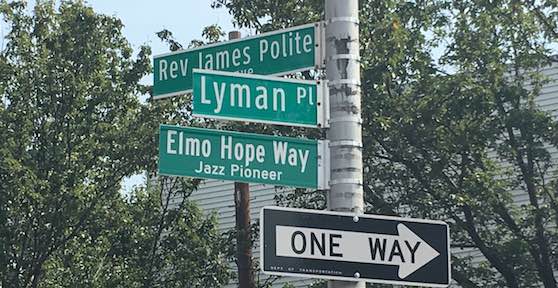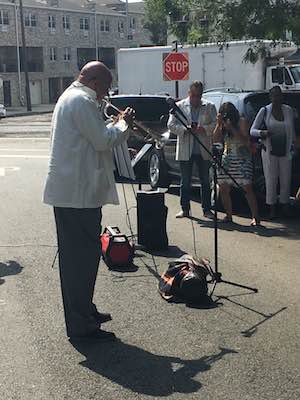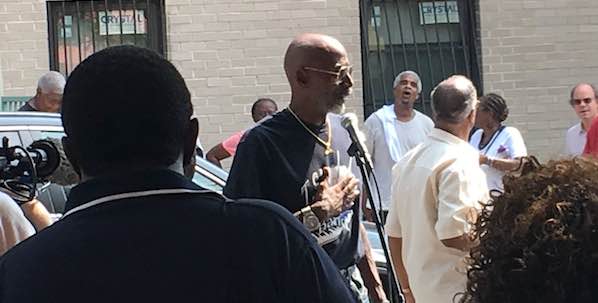Lyman Place was co-named during a ceremony last Saturday to honor the legendary jazz pianist, composer, and arranger, Elmo Hope. Its now called ‘Elmo Hope Way – Jazz Pioneer.’
Local Bronx residents, historians, musicians, and extended family gathered to celebrate Hope’s legacy, through speeches and musical tributes. Even in the sticky heat, everybody wore their Sunday best and bounced to the jazz rhythms of Jimmy Owens on trumpet and George Braith on Saxophone.
Jazz drummers Bobby Sanabria and T.S. Monk shared personal anecdotes about Hope’s impact on their careers and Mark Naison, who is a professor of history at Fordham University, discussed Hope’s contributions – both cultural and personal – to the local community. Hope is a key figure in Naison’s book “Before The Fires: An Oral History of African American Life in The Bronx”.
“Elmo Hope was at the center of what happened on this block,” said Naison.
Following the ceremony, the party continued in the air-conditioning of the Bronx Music Heritage Center, with a live performance by pianist Bertha Hope, Elmo Hope’s wife.
The son of Caribbean immigrant parents, Hope grew up in New York City and spent many years living on Lyman Place in an apartment building between Freeman and 169th Streets. For two years in the early 1960s, the block was also home to his close friend, another jazz legend, Thelonious Monk.
“Thelonious Monk didn’t use the word genius very often,” his son, T.S. Monk, told the crowd of 30 Bronx residents and jazz fans. “But he said that Elmo was a genius.” “Nobody recognizes genius like another genius.”
In his 20-year career, Hope performed on over 70 albums, including the early works of John Coltrane. He is knows to many as one of the creators of hardbop – a more aggressive of evolution of bebop.
“The contributions of this man have been so important to the history of jazz,” Monk said, “that the city of New York and the citizens of Lyman Place feel that it is absolutely necessary to name this area for the late, great Elmo Hope.”



